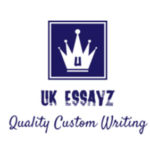Choose 3 questions from below to answer, need quotes and examples to prove your point
About 270 words per each question.
•Customer loyalty is said to have both attitudinal and behavioural dimensions (Dick & Basu, 1994). Using academic theory, explain why organisations seek to create both attitudinal and behavioural loyalty
•Employees are said to play a crucial role in helping their employers to develop good relationships with customers (Heskett et al., 1994). Using academic theory, explain what you understand by the expression ‘internal marketing’?
•Value-based communities are associated with the concept of ‘tribal marketing’ (Cova & Cova, 2002). Using academic theory, how would you distinguish consumer tribes from brand communities?
•Key account management (KAM) is an important approach to building business-to-business (B2B) customer relationships. Referring to academic theory, what are the main reasons for adopting KAM?
•Morgan & Hunt (1994) define ‘lateral partnerships’ as forms of business-to-business (B2B) relationships. By referring to academic theory and by using appropriate examples, set out why companies might need to form lateral partnerships with competitors.
1. Is the exam more about using theory or analysing case studies?
It is more about using theories to answer the questions.
2. Is the question plan written on the answer sheet?
Yes, you must not write on any other pieces of paper in the exam.
3. How many topics should we revise?
This is up to you, but we strongly suggest revising more than two topics in case your
preferred question does not come up on the paper.
4. Do we have extra time for reading the questions before starting the exam?
No, reading the questions is included in the time for the exam.
5. Can we bring dictionaries into the exam?
No.
6. How many references should we use for each question?
It is not possible to give a definitive answer and clearly the grading of the exams rewards
students who use more, relevant academic sources.
7. Does every theory need an author’s name?
Ideally you will remember whose theory you are using and higher marks will be awarded
when you cite the authors and year of the paper. However, if you cannot exactly remember
this information it is still better to use the theory than ignore it.
8. Should the answers have an introduction, main body and conclusion?
Yes, this would be an appropriate structure, although the introduction need not be that long.
9. Do we need a main argument in each answer?
This is difficult to answer for all questions, but you should aim to give the marker a strong
sense that you understand relationship marketing and can relate your answers to this topic.
10. Can we use examples to support our arguments?
Yes, up to a point but please do not let examples ‘take over’ your answers, which should be
focused on using academic theory to answer the questions posed. Limited use of examples
can illustrate the points you make if necessary.
11. How long should each answer be?
There is no word limit in the exam (rather there is a time limit), so it is advisable to write as
much as possible as long as this is answering the question and helping to demonstrate your
knowledge of the topic. There is no point in writing things that do not answer the question
or demonstrate your knowledge of the topic, so stop when you have answered the question
as fully as possible.
12. Do we need citations to support everything we write?
No, although it is important to use academic theory, you clearly will not be able to
remember as many references as used in assignments. Therefore, the opportunity is for you
to demonstrate your knowledge of the topic by providing coherent and thoughtful answers.
13. Do we need to use headings/sub-headings?
Exam answers are likely to more like essays, so use paragraphs to separate the main parts of
the answer, but not headings/sub-headings.
14. Do we need to define all the key terms?
This depends to some extent. If you can remember the definition of the main concept that
the answer is about then it can be useful to define it, particuarly if you note the authors of
this definition. You do not need to define every concept though and there is no point in
repeating a definition if already provided in the question.
15. If an academic reference is used in the exam question, should we focus on this paper
or widen our scope to include others?
The latter, as you are expected to have wider knowledge of the academic literature beyond
the paper already provided in the question’s title.
16. Do we need to include a bibliography?
Unless you can remember more about the in-text citation than the authors and date, there
is little point in writing references in a bibliography. If you can remember further details such
as the journal, then this is useful.
17. Do we have to be critical in the answers?
Yes, in the sense that you will use academic literature to help answer the questions,
although clearly there will be less literature used in the exam than in the module
assignment. However, in the exam you have the chance to demonstrate your understanding
of relationship marketing by applying these concepts to answer specific questions.
18. Are there exam revision sessions?
Yes, there is a link in the exam revision slides to ‘KnowHow’, the University’s facility that
provides academic guidance to students. Via their website sessions on exam revision and
taking exams can be booked.
